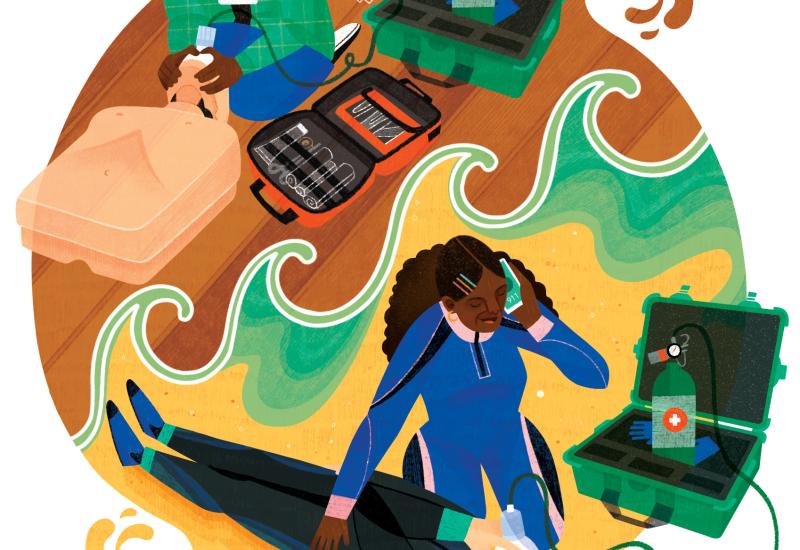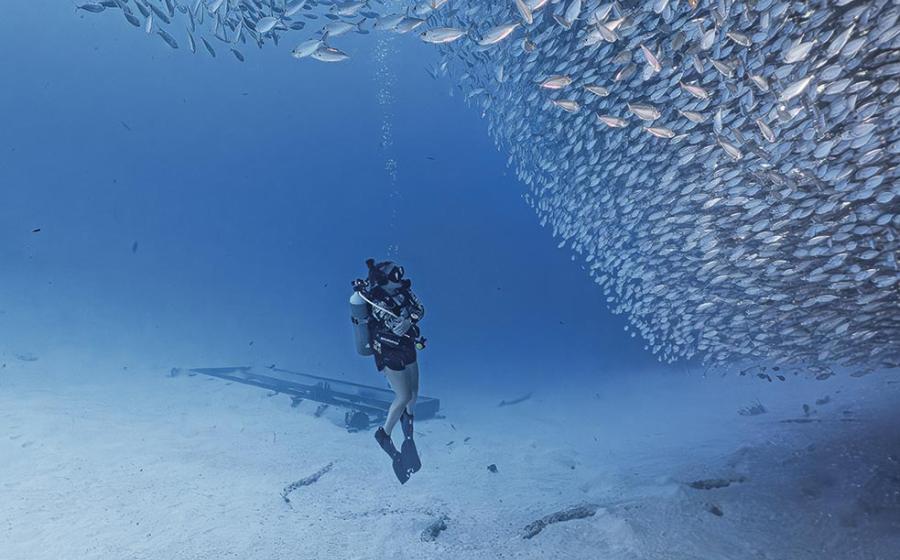How to Manage Your Diving Task Load

Mornings are a busy time for me. I usually try to scramble a few eggs, reply to overnight emails and texts, review my notes before class and check the bus schedule while… Shoot. I burned the eggs. Again. Most of us have made similar mistakes when overloaded with tasks. As unfortunate as burning eggs is, making mistakes while diving can lead to much more severe consequences.
What is Task Loading?
Task loading is a framework that describes how our performance is affected by the cognitive demands of tasks (load) and our capacity to meet these demands. In practical terms, when we are overwhelmed with tasks and/or underprepared, mistakes become more likely. We can visualize this relationship with the simple equation below:
Task 1 + Task 2 + Task 3 + ••• > Cognitive Capacity
How much load is placed on our attention is influenced by the number of tasks we’re trying to juggle, how difficult each task is and how long each task takes to complete. Meanwhile, our capacity to handle the sum of these demands can be affected by our physical state (sleep, nutrition, hydration, fitness) as well as our mental state (energy, emotions, situational awareness).
Related Reading: What It's Like to Be a Public Safety Diver
Task Loading in a Diving Context
On the task loading side of the equation, some of the tasks we perform underwater, such as switching gases, deploying a DSMB or even maintaining buoyancy, may be relatively unfamiliar if you are not lucky enough to dive frequently. Because these tasks are unfamiliar, they impose a great cognitive demand.
In a similar vein, unplanned tasks, such as managing a sudden loss of gas, require significantly greater cognitive resources than anticipated tasks we incorporate into the dive plan. If a diver is already near their cognitive capacity, a sudden unexpected spike in demand can precipitate a deadly mistake.
On the capacity side of the equation, physical factors like gas narcosis affect our ability to think. Many divers may not “feel” the effects of narcosis while diving, but symptoms may become recognizable only after a mistake has occurred.
In addition, our emotional state impacts our cognitive capacity. Anxiety or panic can greatly diminish our ability to think rationally and thus deal with the tasks at hand.
Sign up for PADI Club to receive Divers Alert Network benefits, including a free DAN Prepared Diver course.
Dealing With Task Loading
At this point, it may seem like everything is poised to make diving hazardous. However, I have some actionable steps to help you mitigate risk.
Practice, practice, practice: The more you practice a skill, the more automatic it becomes, and the less cognitive resources it demands. Experienced divers can handle complex issues not only because they have the skills to recognize and solve them, but also because they have freed up cognitive resources to focus on issues when fundamentals such as buoyancy became automatic. It pays off to take the time to polish your buoyancy and other fundamentals before a big dive!
Find a dive buddy: Diving with a buddy instantly doubles your capacity to solve issues by providing an extra set of hands, additional gas and an extra mind to help problem-solve. To get the most out of this amazing partnership, focus on improving communication and teamwork by reviewing your dive plans and emergency protocols. Diving with a buddy with whom you have chemistry is safer and is part of what makes diving special.
Realize when the math does not add up: Sometimes the situation simply is not conducive to diving. If conditions are too challenging or you do not feel ready for the dive, you are always entitled to call off the dive. Take this opportunity to recharge and regroup for the next one!
Related Reading: 3 Mindful Techniques to Improve Your Diving
I love the challenge and thrill of diving. And while there is so much I would like to do underwater and never enough time, I have learned that sometimes it’s better to slow things down and just enjoy blowing some bubbles.










